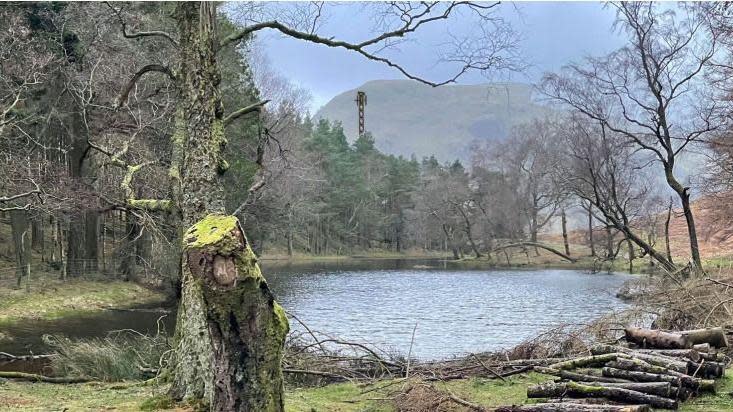Plans for 'intrusive' telecoms mast refused

Plans to build a telecommunications mast in a national park have been turned down.
The Lake District National Park Authority (LDNPA) refused a planning application from Cornerstone to construct a 118ft (36m) tall tower at Lanty’s Tarn near Patterdale.
The proposal would have offered improved emergency service coverage and commercial coverage for the entire Grisedale Valley and parts of Patterdale, according to planning documents.
A report by planning officers stated: "The proposals would however result in the addition of a large utilitarian and incongruous feature into a highly sensitive landscape setting."
Members of the development control committee for the LDNPA refused the application, the Local Democracy Reporting Service said.
A report by planning officers concluded: "On balance, it is not considered that the public benefits arising from the proposals are sufficient to outweigh the adverse landscape, visual and historic impacts identified."
'Not spot'
The proposed location was in a site that was "almost entirely" surrounded by mature trees, the planning document said.
The applicant said: "The location has been chosen as the site will be able to fulfil its operational requirements whilst benefitting from extensive screening from the mature trees and topographical features."
The proposals received support from Dr Neil Hudson, MP for Penrith and The Border, who said his constituency has been "plagued with not spot areas, where families and businesses struggle to access any form of phone signal or broadband".
'Intrusive and incongruous'
The plans received 49 objections which raised concerns the proposal was "out of character" with the rest of the area.
Landscape charity Friends of the Lake District said: "The development of the proposed communications mast would erode the sense of tranquillity by introducing a tall, vertical, intrusive and incongruous man-made communications structure."
The proposal was part of the government backed Shared Rural Network scheme which aimed to improve 4G coverage for people living, working and travelling in rural areas which have little to no coverage.
Follow BBC Cumbria on X (formerly Twitter), Facebook and Instagram. Send your story ideas to northeastandcumbria@bbc.co.uk

